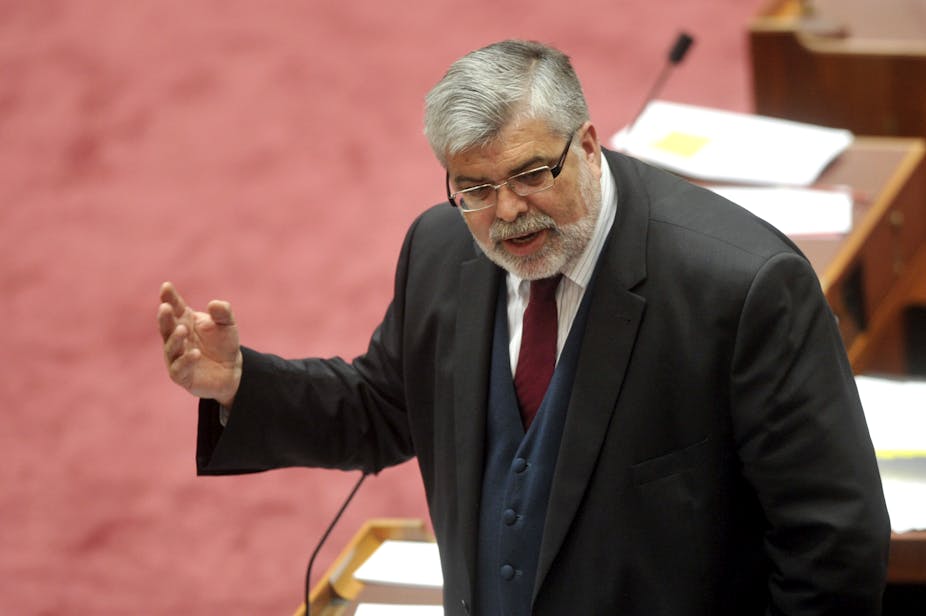Human Services Minister Kim Carr is doing the rounds of Australian universities to encourage researchers to dip into the honeypot of data which his department is making available.
The material provides huge potential for those working in health, the social sciences and many other areas, and has been welcomed by those pressing for more open information from governments.
The proposal to free up the data was first discussed late last year at a low-key conference of academics and public servants.
Senator Carr, visiting Deakin University yesterday to discuss how government data could support academic studies, said the department had a quarter of the Commonwealth’s staff, two-fifths of its budget and the biggest IT network in the southern hemisphere.
It made 200 million individual payments a year, including through Centrelink, Medicare and the Child Support Agency, and sought to “look after Australians through every stage of life.”
“So this is our window to a changing society. This is the DNA of modern Australia. Over seven million gigabytes of data. The question for us is how we use it. And this is the time to be having that conversation.”
Tseen Khoo, senior adviser on research development at RMIT University, said last night that getting better demographic information and data about trends could lead to good outcomes as long as the privacy issue was effectively dealt with.
She said that it would also open Australian data to greater international use. “It’s presently difficult for Australian-centred research to make a mark in some disciplines. If better Australian data was more accessible internationally, comparative studies would be much easier,” she said.
Senator Carr said the department was determined to reach out more effectively to researchers and to be better informed in the way it did business. “And for that, it needs your help. This is what I have called our great compact with the science and research community.
"We have an obligation to provide the best kit this country can afford - and that includes the public data that we hold in trust. But we have a right to expect, in exchange, your help to build a better Australia.”
The department has had two requests from health researchers at Deakin: one about material to help understand how to deal with anxiety disorders in children and the other to help tackle the growing problem of osteoporosis. Medicare and Pharmaceutical Benefits Scheme data will be involved.
Senator Carr has had talks in Europe and in Britain about how other countries are harnessing their data. “I have now set out on a series of conversations with researchers back home. I want to hear from you what we can make of this opportunity.”
He admitted there were “barriers of culture”, which included “a legacy of disappointment and frustration in some quarters”.
Both the legitimate concerns of citizens and the realities of budget constraints had to be considered, “but none of that should set limits on our creativity or our commitment.”
Senator Carr recently spoke with researchers from the University of Sydney about the database. He said the feedback was positive.
Dr Merran Smith, chief executive of the Population Health Research Network, which is largely funded by government to build health research infrastructure, said making the data more widely available would “continue to develop Australia’s capacity in health and medical research.”
She said the ultimate beneficiary would be the Australian community.
Richard Denniss, executive director of the Australia Institute think tank, said that a “culture of possessiveness” about information had evolved in Australia, where individual departments and levels of government saw the data they possessed as an asset for themselves rather than a resource for the community.
He said more open access carried huge potential benefits for citizens, in the form of better service delivery and for taxpayers, in greater efficiencies and cost savings, as well as for researchers.

